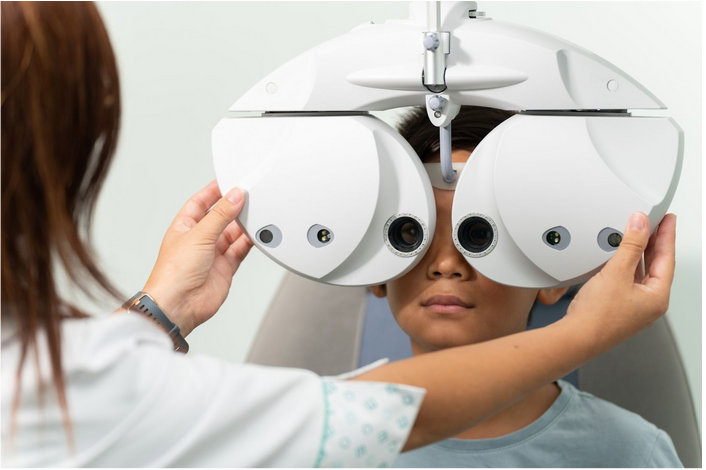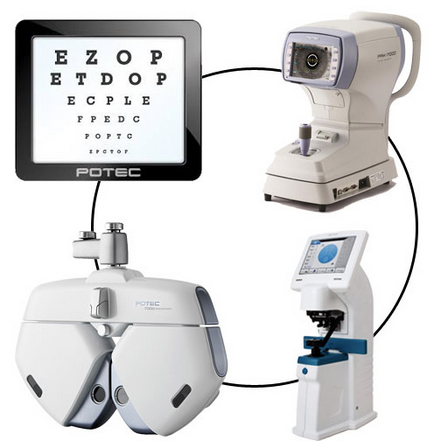
By now, myriad eye care professionals (ECPs) have upgraded to digital refraction technology and are seeing firsthand the benefits automation can bring to the modern ophthalmic practice.
Are you among them?
While some clinicians continue to rely on manual equipment, there are numerous reasons to upgrade to a digital refraction system in the new year. Below are a few of the main benefits doctors can expect when making the switch to digital.
Embracing the digital age: Why automation matters in vision care
Among the biggest benefits of digital refraction systems is their ability to help doctors diagnose refractive errors—a type of vision problem that causes blurred sight. According to the National Eye Institute, refractive errors are the most common vision problem in the United States, affecting more than 150 million individuals.
In order to correctly identify and treat refractive errors such as myopia, hyperopia, astigmatism, and presbyopia, ECPs must determine the root cause of the problem, and digital systems greatly simplify this process. By integrating digital technology into your refractive exams, accuracy is increased exponentially, resulting in far fewer prescription errors and glasses remakes. The level of imagery available with a digital system also provides a detailed picture of your patients' eye health and allows them to see and understand their diagnoses to a greater degree.
Digital refraction systems also integrate quickly and easily with your existing EMR platform, allowing for data to be uploaded automatically during the exam process. Key advantages of EMR-compatible digital equipment include the elimination of transcription errors, greater flexibility, improved accuracy, and complete connectivity.
Finally, digital refraction technology improves the overall efficiency of your practice, which in turn benefits your bottom line. Doctors report significant increases in revenue by eliminating slower and outdated manual phoropters and replacing them with digital refraction systems that integrate with their pre-test equipment.
But the benefits don't end there.
Research shows that digital refraction systems have a positive impact on overall patient satisfaction. That's because less time spent manually adjusting and entering data means more face time with your patients. Technicians can also be trained to operate the digital equipment so you have more time to interact with patients on a more clinical level.
And let's not forget the physical benefits. Digital equipment has been shown to reduce the pain and discomfort associated with repetitive motion tasks like continually flipping plates and making adjustments.

Veatch Digital Refraction Suite
What are the primary components of a digital refraction system?
Although components may vary from one system to the next, the following pieces of equipment comprise the standard components of an automated or digital refraction system.
Using a digital refractor is fast and simple compared to the time-consuming practices of baseline refraction and retinoscopy. Although reading the results requires professional interpretation, digital refractors accelerate the data-gathering process by automatically supplying details to patient EMRs. Some models also accept subjective adjustments, which further streamlines the process.
In short, digital technology is enabling doctors to see more patients over the course of a day, improving the efficiency of clinics and offices across the country.
Are you ready to build your digital practice? Talk to the experts at Veatch.
In business for more than 30 years, Veatch Ophthalmic Instruments has built a reputation for superior quality and service. Our technicians can help you find exactly the right digital equipment for your needs and budget to save you the hassle of shopping and comparison. Contact us for a free 15-minute efficiency evaluation to get started.